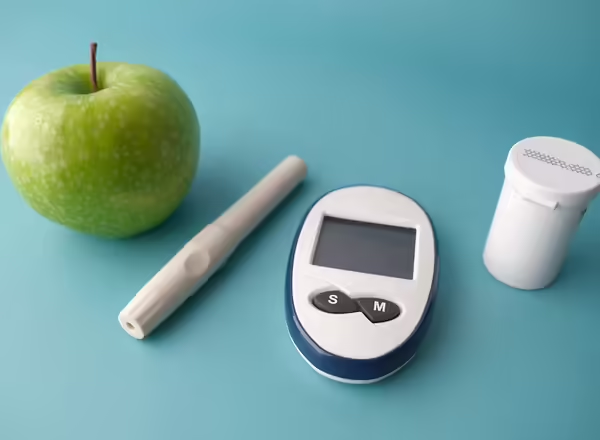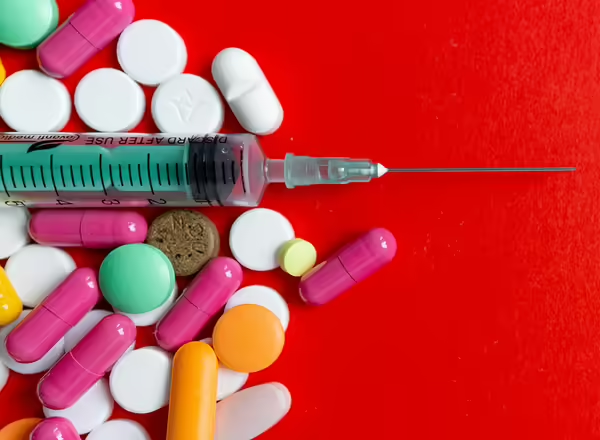
Hypoglycemia and Diabetes
Hypoglycemia happens when blood glucose drops below 70mg/dl. Most people recognize low blood glucose symptoms, and get relief of these symptoms after eating a fast-acting carbohydrate. Individuals taking insulin or some type 2 diabetes medications are at risk of hypoglycemia.
Severe hypoglycemia occurs when blood glucose falls to a level that requires someone else to help with treatment because of altered mental status.
Usually when hypoglycemia occurs, there are a variety of recognizable symptoms such as shakiness, sweating, anxiety, heart palpitations, irritability, and dizziness. With hypoglycemia unawareness, blood glucose drops without these typical warning symptoms. This condition is caused by a failure of glucose counter regulation.
Frequent episodes of hypoglycemia can cause increasingly lower levels of glucose to produce symptoms. In some cases, these warning symptoms are not present at all.
Hypoglycemia unawareness is more common with type 1 diabetes because of the dependence on insulin. The longer the duration of diabetes, the greater the risk of hypoglycemia unawareness.
The absence of hypoglycemia symptoms presents a danger for the person with diabetes. This can be especially concerning if it happens during sleep, or when one is driving. It is also a difficult management issue for the health care provider.
Treatment for hypoglycemia unawareness is avoiding low blood glucose.
- Start with identifying the blood glucose level that triggers hypoglycemic symptoms.
- Work with your health-care provider to modify glucose and A1C targets to prevent hypoglycemia. The longer hypoglycemia is avoided the better. It can help restore the blood glucose response.
Technology can play an important safety role.
- Wearing a continuous glucose monitor that alarms as glucose levels drop too low will alert you to the developing hypoglycemia.
- Some devices can send alerts to loved ones as an additional safety measure. This safety measure provides another level of comfort for parents of children with type 1 diabetes.
- Some insulin pumps will suspend insulin delivery when glucose drops too low.

The right choice is something that will raise blood glucose quickly and bring it back up to normal. The usual recommendation is 15 grams of fast-acting carbohydrate. These carbohydrates are easily converted to sugar in the body.
15 grams of fast-acting carbohydrate
- 4 ounces (1/2 cup) fruit juice
- 7 saltine crackers
- 4 glucose tablets
- 1 slice white bread
- 4 ounces (1/2cup) regular soda
- 8 lifesavers candy

Fifteen minutes after treating your hypoglycemia, you need to re-check your blood glucose. If there has not been any rise in your glucose, take another 15 grams of carbohydrate. If your blood glucose has begun to rise but not reached 70 mg/dl, check again in another 15 minutes and treat again if it is still below 70 mg/dl.
Being skilled at counting carbs can help in the treatment of hypoglycemia. The more you weigh and the lower your blood glucose, the more carbohydrate you will need to eat bring your glucose up to a safe range.

Hypoglycemia is more likely to occur if taking any of these diabetes medications:
- Any type of insulin
- Glyburide
- Glipizide
- Glimepiride
- Chlorpropamide (Diabenese)
- Repaglinide(Prandin)
- Nateglinide(Starlix)
- Any combination of these medications
Hypoglycemia can happen when there are factors causing your blood glucose to drop without any factors that increase blood glucose.
Factors that decrease blood glucose:
- Insulin and the above-listed diabetes medications
- Physical activity
- Nausea and vomiting
- Alcohol
Factors that can increase blood glucose:
- Simple carbohydrates (sugar)
- Complex carbohydrates (starch)
- Illness or infection
- Stress
More frequent hypoglycemia is concerning and needs to be evaluated by your health care provider. If your blood glucose drops low enough it can cause loss of consciousness, accidents, or seizures. This is severe hypoglycemia and requires help from another person. Severe hypoglycemia can be life-threatening. Emergency help should be called. A glucagon injection may be given. Glucagon is a hormone that will quickly raise blood glucose.
Tips to Prevent Hypoglycemia
- Unexpected Meal Delay: Have a small carb-containing snack like fruit, yogurt, or crackers to keep blood glucose stable until able to eat a meal.
- Unable to Eat a Meal of Solid Food: Drink a carb-containing beverage equal to your usual mealtime carb intakes such as juice, milk, or regular soda.
- Increased Physical Activity: Plan activity after food intake and keep a carb-containing snack handy.
- Illness: Contact your health care provider if vomiting and unable to eat. Sip on carb-containing beverages.
- Moderate Alcohol Intake: Switch to seltzer water, non-alcohol beer, or diet soda.
- Guessing Your Carb Intake: Learn how to read labels and count carbs, especially if matching carbs to insulin.
- Timing of Medication and Food Intake: Meals eaten at regular times will help keep blood glucose more stable.
- Know Your Blood Glucose Level: Use finger stick method to check glucose. Do not rely on how you feel. Monitor as appropriate.